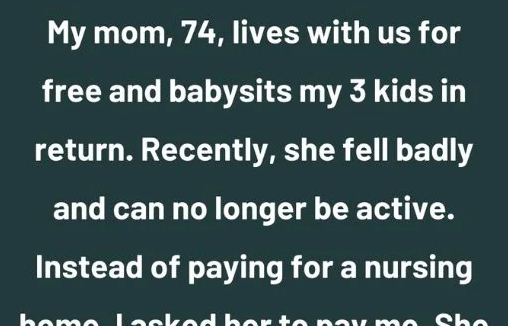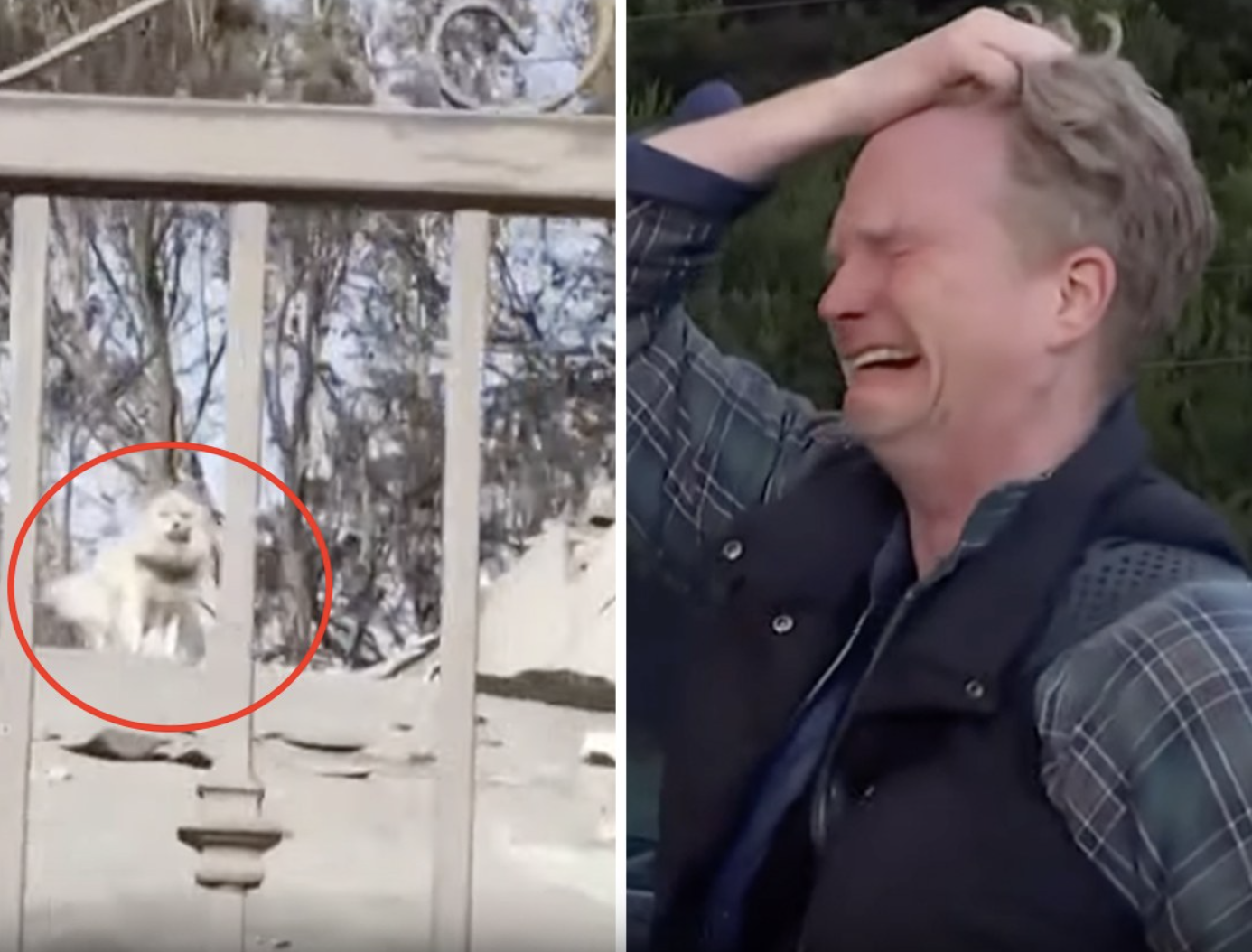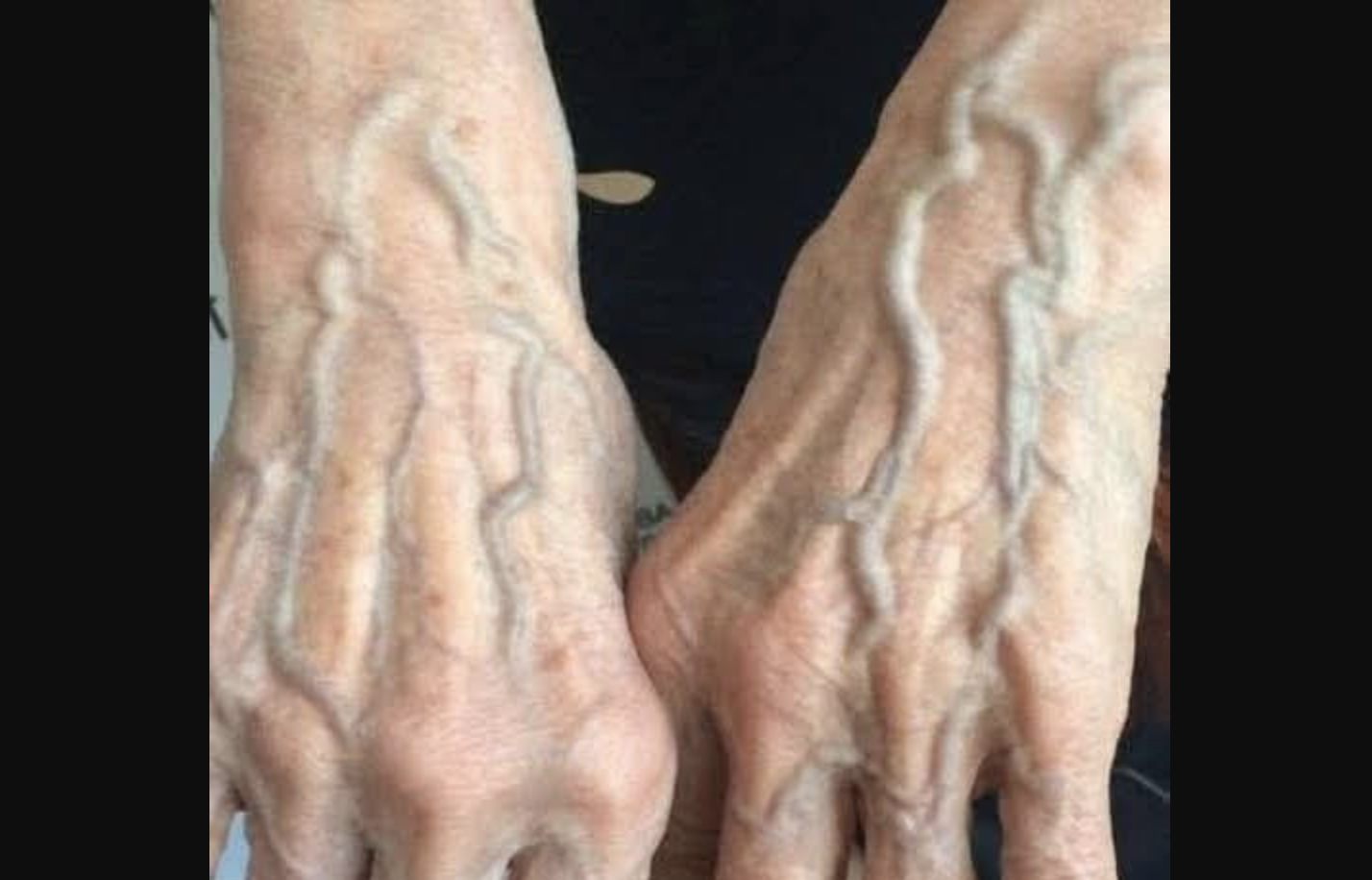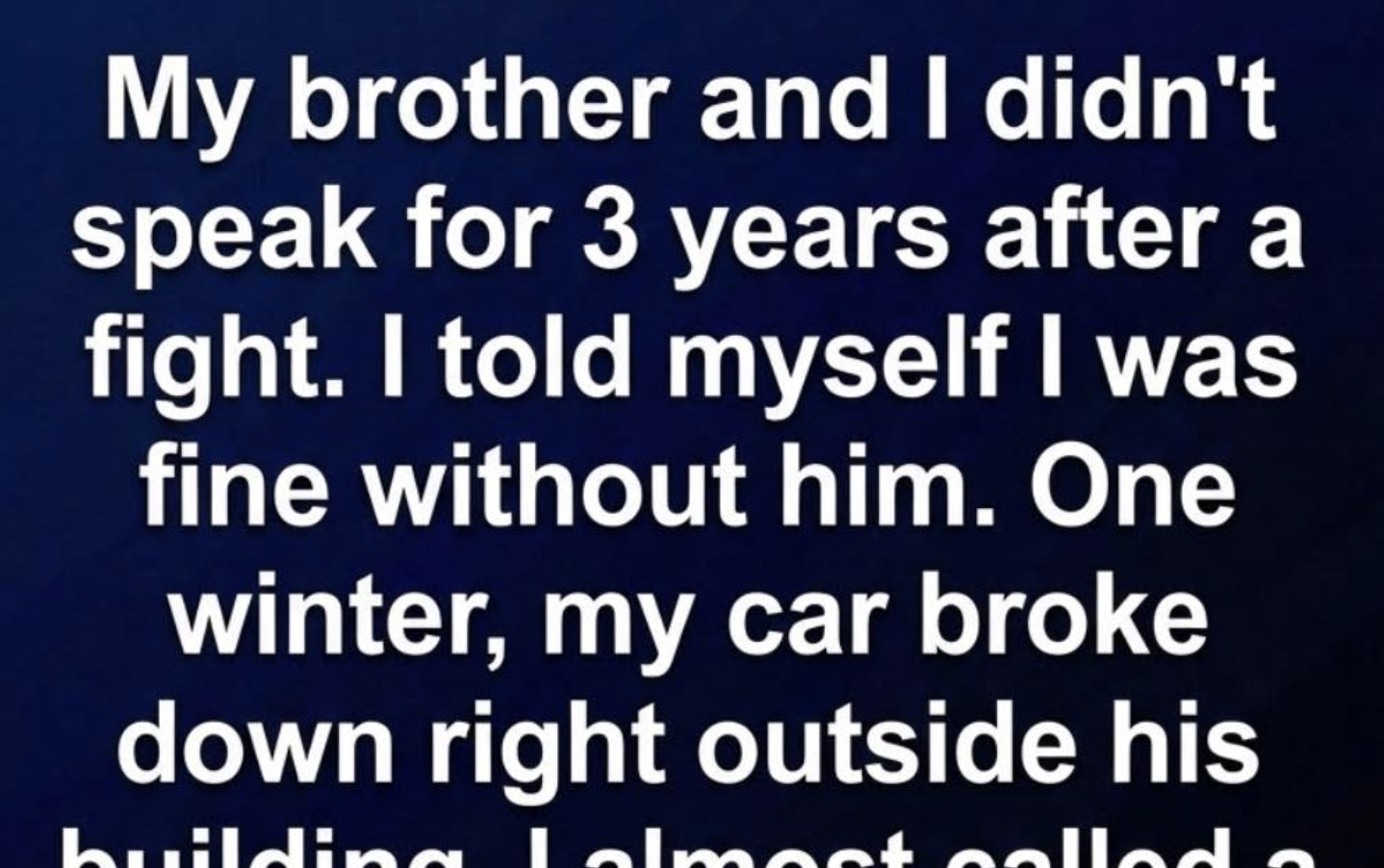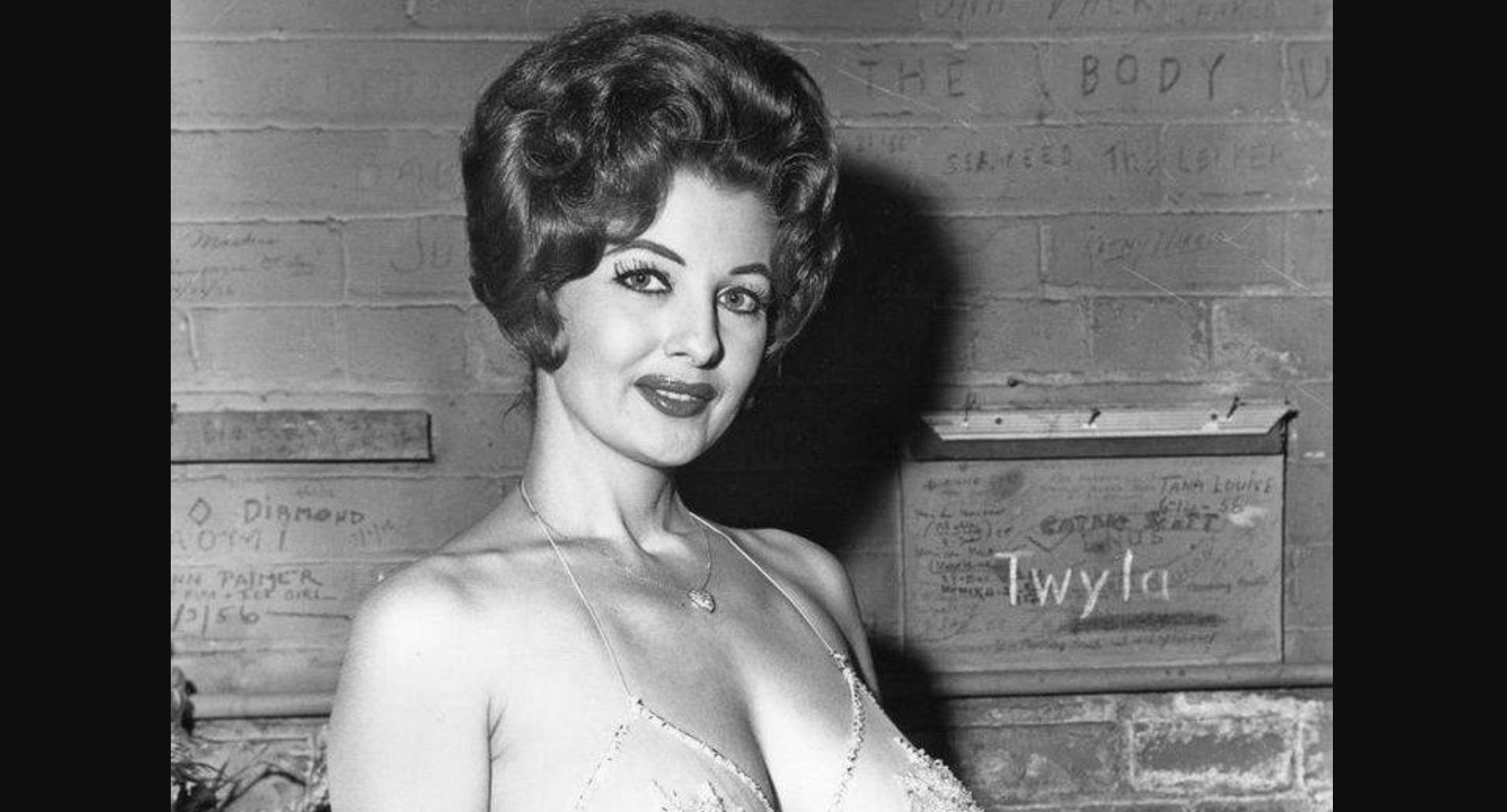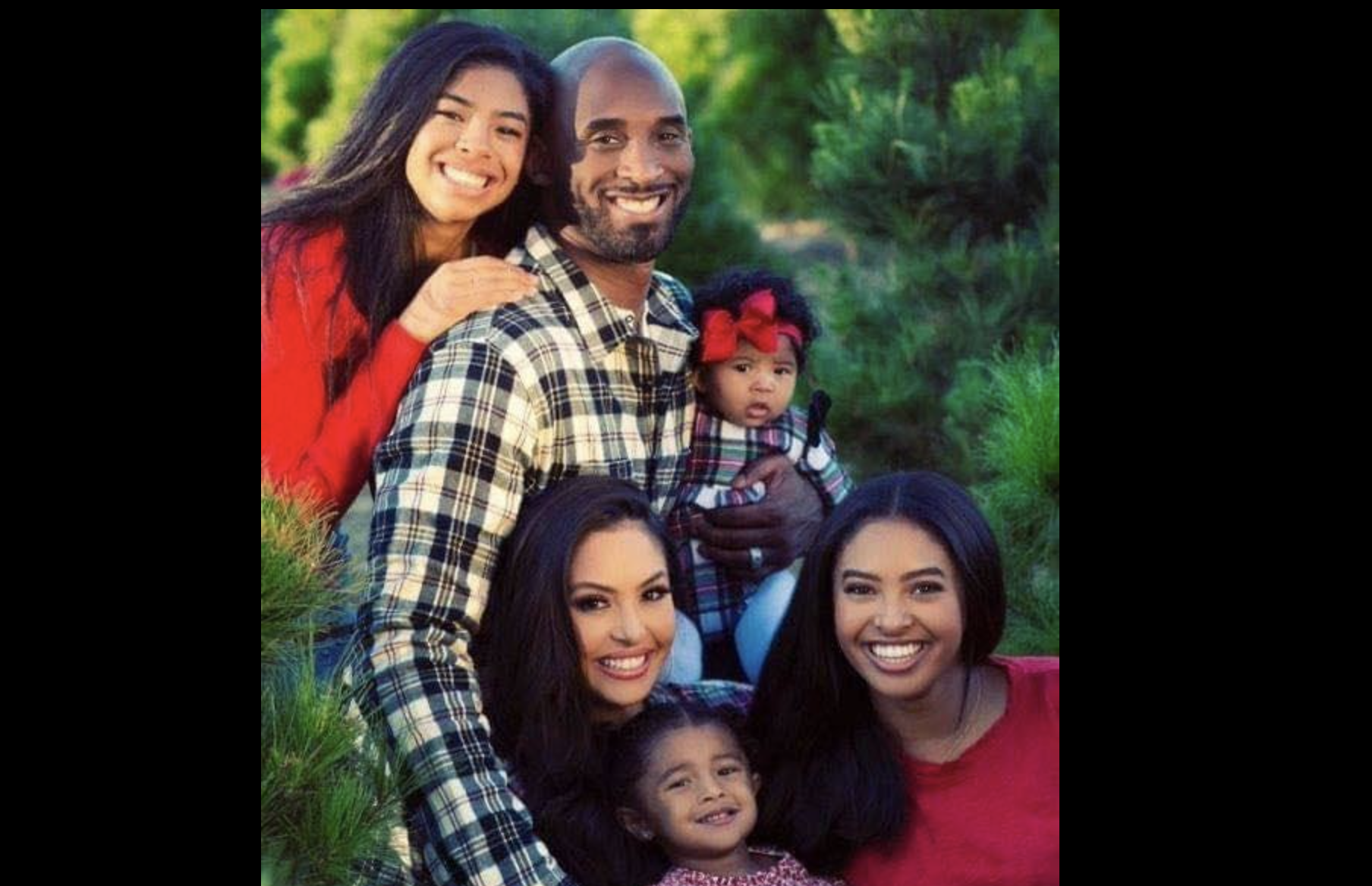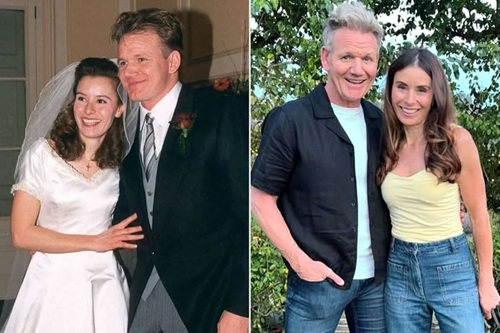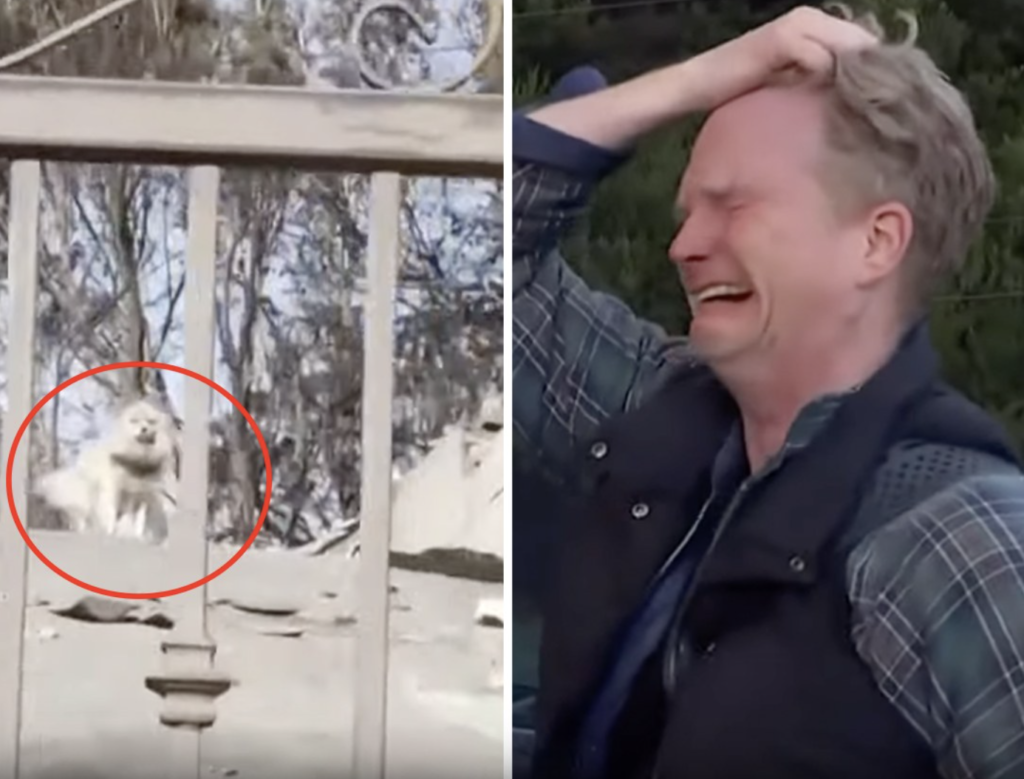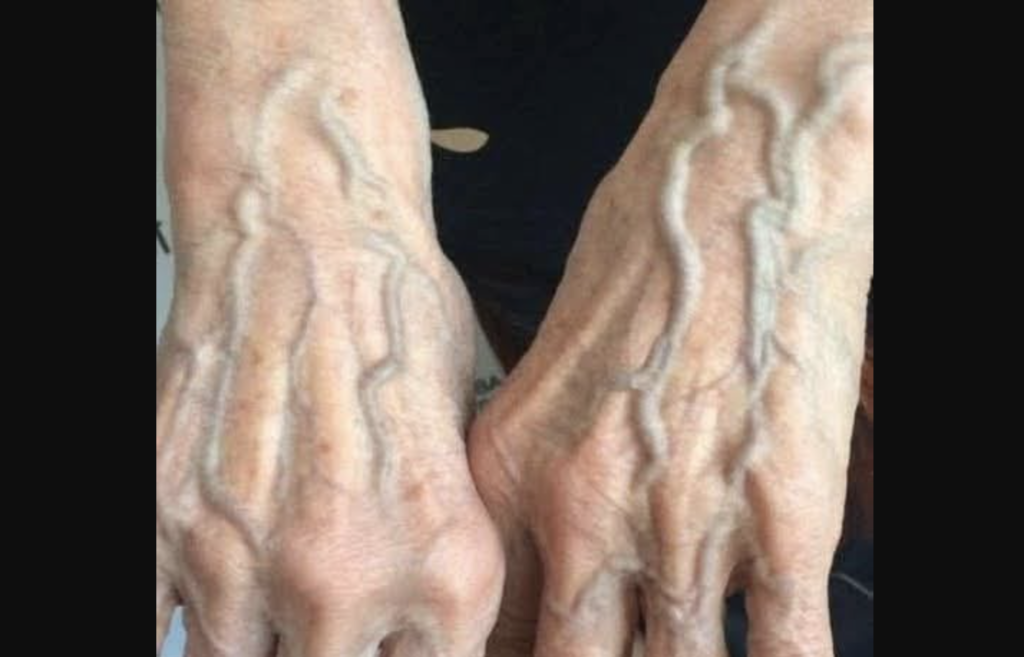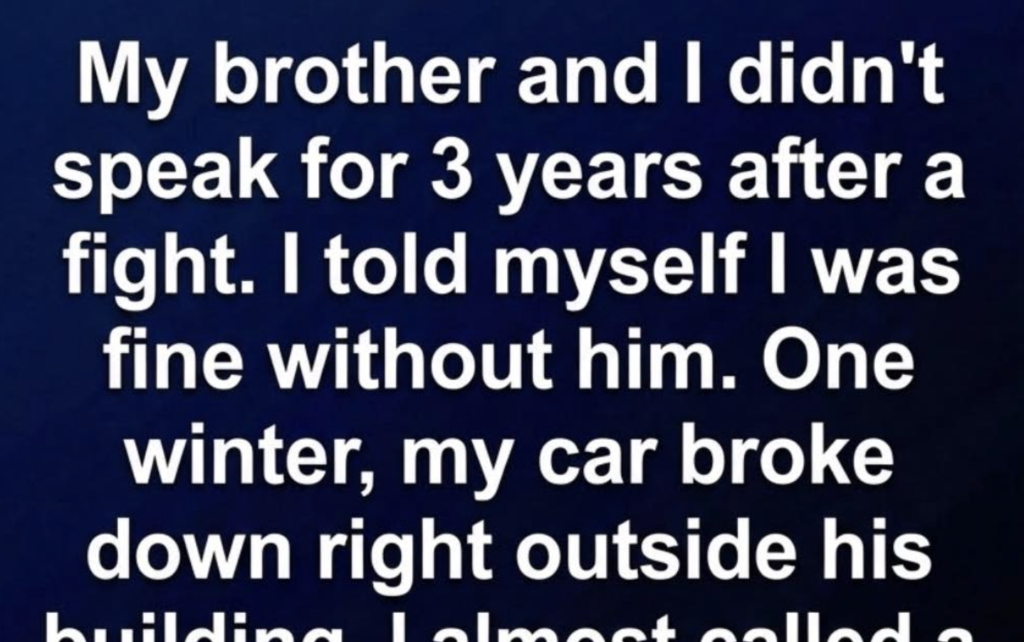My mother, aged 74, resides with us without paying rent, offering her time to care for my three children in exchange. Not long ago, she suffered a serious fall, leaving her unable to stay active. Rather than arranging for a care facility, I suggested she contribute financially. Her response was sharp: “I’m your mother—you owe me!” Later that evening, my son’s panicked voice broke through the house. I stood frozen. My mother had…
…barricaded herself in the bathroom. His frantic knocks echoed, mixed with my younger daughter’s cries piercing the air. I raced upstairs, my pulse pounding as if I were young again, not a 42-year-old with a sore shoulder and aching knees. Without hesitation, I pushed the door open with force.
There she sat on the closed toilet, fully dressed, her posture slumped like a faded version of herself. Her eyes were distant, her expression vacant.
Initially, I feared she’d lost consciousness. I called out, “Mamá!” Her head jerked up, as if pulled back from somewhere far away. Blinking slowly, she murmured, “I felt cold. I needed a moment alone.”
I wasn’t convinced. Neither was Mateo, my son, who stood gripping the doorframe, his eyes wide with worry.
That night, after tucking the kids into bed, I sat with her at the kitchen table. I spoke softly, explaining that things needed to shift. She could no longer assist with household tasks. I was balancing a demanding job, three children under ten, and now her care. I was overwhelmed.
Her gaze hit me hard—the same one that had silenced me since childhood, a blend of disappointment and sorrow. “I carried you for nine months. I worked double shifts to put you through school. Now you want me to pay rent?”
My heart sank. This wasn’t my intention. But our finances were tight. My husband’s hours had been reduced, and rising costs strained every penny. Hiring help or considering a care facility would cost thousands monthly.
“I’m not asking for rent,” I said, keeping my tone steady. “I’m asking for help with costs. If you have any savings, even a small amount, it could help us keep you here.”
She fell quiet. A fleeting look crossed her face. Then, sharply, she said, “Fine. I’ll sort it out. Don’t concern yourself with me.”
The next day, her demeanor changed. She was reserved, almost guarded. She didn’t engage with the kids as usual. She stayed in her room, and when I offered her tea, she claimed she was exhausted.
Then items began to disappear.
First, my gold bracelet vanished. I thought it was misplaced in the wash. Then my husband’s Bluetooth speaker, which he insisted was left in the kitchen, was gone. My daughter, Ava, innocently suggested, “Maybe Grandma took it.” I brushed it off with a laugh. But I searched her room.
Nothing turned up.
Still, something felt wrong.
One morning, I noticed her purse wasn’t hanging by the door as usual. When she left it in the living room, I glanced inside.
What I saw stopped me cold.
Bundles of cash—roughly two thousand dollars, secured with rubber bands. And a small black notebook listing dates, sums, and initials.
I stared, torn between anger and disbelief. We’d been scraping by, eating simple meals, skipping celebrations. And she had hidden money all along?
I waited until the kids were napping and confronted her.
“Where is this from?” I asked, holding the notebook.
She didn’t flinch. Looking at me calmly, she said, “You don’t know all of me, querida.”
That evening, over chamomile tea, she revealed everything.
For years, she’d been lending money to neighbors—small sums, $100 or $300, with modest interest. Not enough to amass wealth, but enough to create a small reserve.
“Some find purpose in church,” she said. “I find it in helping others. Mostly women. Those who can’t get loans, too proud to ask their husbands.”
I was stunned. “You’re… a lender?”
She chuckled. “Not a big fish. More like a minnow with a bite.”
Then her tone softened. “But it’s slowing down. I haven’t lent since my fall. And I owe some people back.”
I leaned back, speechless. I’d always seen her as a gentle, retired housekeeper who adored her grandchildren. Yet she’d been running a quiet operation under my roof.
She must’ve sensed my thoughts. “Do you think less of me?”
“No,” I answered truthfully. “I wish you’d told me. We could’ve supported each other.”
She stared into her tea. “It’s not only about money. It’s about pride.”
I barely slept that night.
The next morning, I made an unexpected move. I contacted Nadia, a high school friend who worked as a social worker at the local community center.
I asked if they needed a mentor—someone to guide others on budgeting, childcare, or navigating life as an immigrant.
Nadia was excited. “We’ve been searching for someone like that,” she said.
When I proposed it to my mother, she hesitated. “I can hardly walk. What could I teach?”
“Your mind is sharp,” I replied. “You’ve lived more than most can imagine. You don’t need to walk to share your wisdom, Mamá.”
She began gradually—one class a week, then two. She sat in a folding chair, her notebook in hand, teaching women about budgeting, raising children, handling difficult family dynamics.
Something in her changed.
She began to smile again. She laughed with my kids. She even joined me in the kitchen, perched on a stool, directing me as I cooked.
Then came an unexpected moment.
One Saturday, as I cleaned the counter, a knock came at the door. A woman in her fifties, well-dressed, stood there holding a paper bag.
She introduced herself as Lianne. “Your mother helped me years ago,” she said. “When my ex left me with two kids and no income. She gave me $500, no questions. Told me to buy food and move forward.”
I welcomed her in, and over coffee, she shared that she now ran a small catering business. “Your mom gave me a start. I’m here to repay her.”
In the bag was a check for $5,000.
I gasped. My mother teared up. Lianne smiled and said, “She transformed lives. It’s time we transformed hers.”
In the weeks that followed, more people came. A former teen mother, now in college. A reserved woman who’d become a hairdresser, offering us free haircuts. A man who said my mother helped him find sobriety by listening and sharing a meal weekly.
The community she’d quietly nurtured stepped forward to repay her kindness.
One woman offered to care for my mother twice weekly, giving me a break. Another arranged a meal rotation. Neighbors we hardly knew mowed our lawn, provided rides, and brought art supplies for the kids.
I was overwhelmed. And humbled.
I’d pressured my mother for money, viewing her as a burden, unaware she’d been a pillar for so many.
One evening, as I folded laundry, I asked why she kept it secret.
She shrugged. “You saw me as your mother. But I was more than that, once.”
Those words struck deep.
I’d overlooked that parents have lives before us. They aren’t here only to care for us or fade into the background as they age.
Everything shifted after that.
We still faced challenges, but we faced them as a team. My mother continued teaching at the center, and I helped her launch an online group for women seeking small loans or guidance. We named it La Mano Fuerte—The Strong Hand.
She taught Ava to make empanadas, and now my daughter dreams of running a food cart. My son, who once tiptoed around Grandma, now sits with her daily, soaking in her stories.
And me?
I began to see caregiving as an honor, not a task.
I’d nearly sent my mother to a care facility, reducing her value to her physical contributions. I was so focused on getting by that I missed the bigger picture.
Now, watching her guide another young mother, sharing wisdom or quietly passing a $20 bill, I feel pride.
She didn’t only give me life. She gave me insight.
Here’s what I’ve learned:
Never assume someone’s greatest days are past. And never judge someone’s value by what they offer you.
Sometimes, the quietest people leave the deepest impact.
If this story resonated with you, please share it. You never know who might need the perspective. 💛
